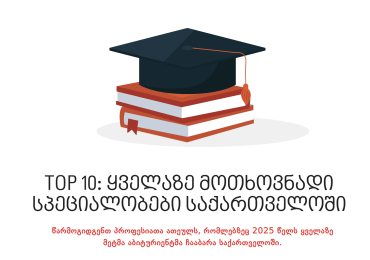As one of the most significant challenges in Georgia, the World Bank names a mismatch between the demand for skills of workers and market demand for them. The Bank reports that taking into consideration the structure of Georgia’s economy, relatively small number of jobs require higher education.
“Major part of the population works in low-productive agriculture and trade sector, where demand for higher education institution graduates is relatively low,” – states World Bank in its report and notes that as a result, in Georgia, the number of educated labor exceeds the demand. Besides, the Bank notes that the knowledge possessed by persons with higher education diploma may well be quite far from the requirements for high skilled work.
According to one of the World Bank’s reports (Labor Market Challenges in Georgia), in Georgia, if all unemployed people were employed and if new jobs required currently existing educational skills, 22% of people with higher education would not be able to find jobs. The same report reads that 31% of jobs requiring professional education would not be occupied.
“In Georgia presently majority of people with higher education work in positions, which require professional knowledge. Besides, employers have difficulties with finding and hiring people with professional education. Similar is the situation with IT technologies, tractor operators, hotel managerial staff, etc. besides, according to global competitiveness index of the World Economic Forum, Georgia rates 107 in terms of the quality of education with quite low score – 3 of 7. With no regard to high level of education and demand for higher education, quality of education remains one of the most significant limiting factor in Georgia”, – reads the World Bank report.
















